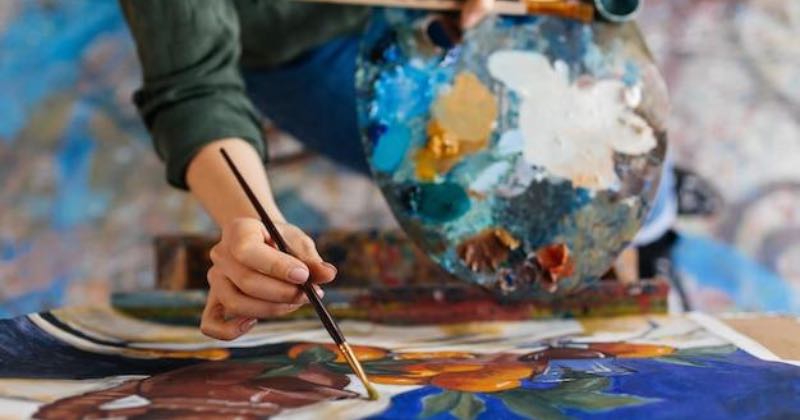Art education assumes a pivotal role in the cultivation of creativity and the fostering of innovation. Beyond the mere instruction in painting or drawing, it is an avenue for equipping students with the cognitive tools and skills necessary for critical thinking, problem-solving, and an open-minded approach to challenges.
Encouraging Divergent Thinking and Varied Perspectives
Arts education serves as a catalyst for divergent thinking and the exploration of diverse viewpoints. Whether scrutinizing a piece of art or deciphering a dance performance, students are consistently prompted to scrutinize, assess, and establish connections.
These critical thinking abilities are fundamental for innovation, enabling individuals to approach problems from unconventional perspectives and devise imaginative solutions.
Embracing Iterative Processes and Risk-Taking
An integral facet of arts education lies in prioritizing process-oriented learning over fixating on outcomes. Students are actively urged to engage in experimentation, take risks, and embrace failure as an inherent aspect of the learning journey. Such a mindset proves pivotal in fostering innovation, empowering individuals to challenge norms, think beyond established boundaries, and conceive groundbreaking ideas.
Fostering Collaborative Competence and Communication Skills
Art education frequently involves collaborative endeavors, where students collaboratively create. This engenders teamwork, communication proficiency, and the capacity to comprehend diverse perspectives. Collaborative skills are indispensable in the professional realm, as innovation often germinates from the combined efforts of a diverse team.
Cultivating Empathy Through Artistic Expression
Art serves as a potent medium for articulating and comprehending emotions. Through arts education, students encounter diverse forms of artistic expression, enhancing their capacity for empathy. Empathy is a pivotal component of innovation, enabling individuals to grasp the needs and viewpoints of others, ultimately leading to the development of products and solutions that genuinely cater to users.
Enhancing Cultural and Global Awareness
Arts education acts as a window into various cultures and perspectives, contributing to a more comprehensive understanding of the world. By encouraging exploration of diverse artistic traditions and styles, students develop a heightened appreciation for the value of diversity and learn to approach challenges with a global mindset. This awareness proves indispensable for fostering innovation, as it stimulates individuals to consider a broad spectrum of perspectives and possibilities.
Nurturing Unbridled Creativity
Arguably, the most evident advantage of arts education lies in its ability to nurture creativity. By granting students the freedom to explore their imaginations and experiment with diverse materials and techniques, art education serves as a catalyst for the creative thinking process. This creative thinking is imperative for innovation, enabling individuals to conceive novel ideas, concepts, and approaches to solve intricate problems.
In Conclusion
In an ever-evolving world, creativity and innovation stand out as essential skills for success. Arts education emerges as a central player in nurturing these skills by fostering critical thinking, embracing failure, promoting collaboration, developing empathy, fostering cultural awareness, and nurturing creativity. By seamlessly integrating arts education into the curriculum, schools can equip students with the tools and mindset essential for thriving in the 21st-century workforce.




